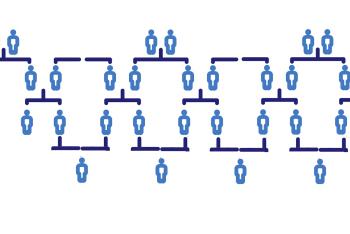Uncover the hidden connections between your family's past and your future well-being as we delve...
Read More
Lung cancer is the number 1 cause of cancer deaths in the United States for both men and women, according to the American Cancer Society. Eight-five percent of these deaths can be attributed to smoking. With that in mind, Inspira offers programs aimed at helping smokers break the habit and prevent serious health issues from developing or worsening.
For individuals who smoke but are determined to make some positive healthy changes in the new year, committing to quitting is the best option, according to Inspira providers.
“If you’re thinking of making a new year’s resolution to improve your health, quitting smoking offers the best return on your investment,” explained Donald Noblett, certified tobacco treatment specialist (CTTS). “It’s better for you than losing weight or exercising.”
Quitting smoking lowers the risk of developing lung cancer, but making the decision to stop and sticking to it are challenging, especially on your own. Recognizing that information and support can help increase the rate of success for those who wish to stop smoking, Inspira offers smoking cessation programs aimed at assisting individuals in becoming long-term nonsmokers. “Those interested in getting free help can receive an automatic referral to a CTTS, meet one-on-one, and develop a quit plan,” said Noblett.
Six-week group sessions also are available, offering support for pre-quitters, quitters, and successful quitters to prevent relapse. The rate of success is much greater when smokers seek out counseling with a CTTS and combine it with nicotine replacement therapy, Noblett said.
Knowing that early detection is crucial, Inspira offers potentially life-saving lung cancer screening that supports patients throughout the process. The program offered by the health network, named a Lung Cancer Screening Center by the American College of Radiology, helps patients detect lung cancer earlier, increasing their chances of survivorship, said Michelle Marshall, assistant vice president for Cancer Services at Inspira. In fact, Inspira has been designated a Screening Center of Excellence by the Lung Cancer Alliance.
Screening for lung cancer using low-dose CT scans can lower the chance of dying from lung cancer by 20 percent, according to the National Lung Cancer Screening Trial.
Who should be screened for lung cancer:
Providing support and assistance at each stage of the process, Inspira’s navigators assist in coordinating the low-dose screening and ensure that patients are well-informed throughout the screening process. Further, the navigators monitor all results and assist in coordinating any follow-up that is needed for future screenings.
“Inspira has a process on the back end to track these patients,” Marshall said. “A nurse will go through the results and, for those that require action, place a call to the physician and say, ‘Your patient had an abnormal result.’ They can coordinate follow-ups with a pulmonologist.
“We’re taking the onus on our ourselves,” she continued. “We’ve got someone actively reviewing on the back end so no one falls through the cracks. We can schedule three- and six-month follow-ups. If a patient has a medium risk, we make sure they continue to get screenings when they’re due. That’s something that’s unique to us. This cuts out the red tape and helps patients get where they need to go in a timely fashion if something is identified in one of these scans.”
If needed, the navigators will offer support and resources to patients through their diagnosis and treatment plan.
If getting healthier is part of your plan, Inspira has the programs and resources to assist you.
Please call 800-INSPIRA for more information about these services.

Uncover the hidden connections between your family's past and your future well-being as we delve...
Read More
Treating cancer requires an arsenal of tools and preventive measures. Explore the power of...
Read More
President & CEO Amy Mansue attended Inspira's Cancer Survivors Day event, organized by our Cancer...
Read More
The material set forth in this site in no way seeks to diagnose or treat illness or to serve as a substitute for professional medical care. Please speak with your health care provider if you have a health concern or if you are considering adopting any exercise program or dietary guidelines. For permission to reprint any portion of this website or to be removed from a notification list, please contact us at (856) 537-6772